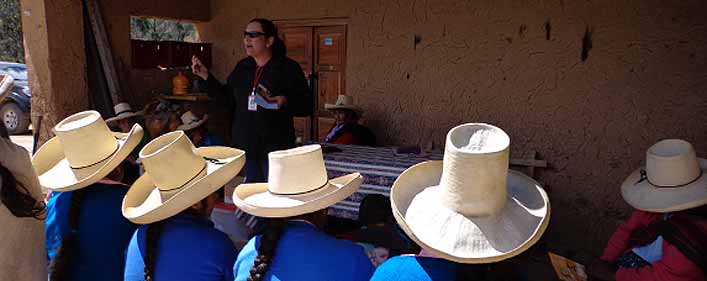The Peruvian Agency for International Cooperation (so called APCI) has included the project presented by ACCIONA Microenergia Peru in its catalogue of successful experiences 2015.

APCI recently reported the results of the contest 'Successful Experiences of the NGOs 2015', which began in October 2015.
To show the civil society organization’s contributions to development and share their successful experiences were the specific objectives of this call, to which 66 NGOs presented 99 experiences from 23 Peruvian regions.
According to APCI release 'the implementation of this activity was carried out by an Organizing Committee comprising representatives of the United Nations Development Programme (UNDP), the ESAN University and APCI'.
A Technical Evaluation Committee comprising 24 national and international experts, who are professionals, professors and researchers leading on the contest’s themes, applied the criteria established in the call so as to qualify 49 Successful Experiences, including ACCIONA Microenergia’s one within the theme ‘Human Development’.
ACCIONA Microenergia and the Sustainable Development Goals
The Sustainable Development Goals (SDG) are included in the 2030 Agenda, a 15-year plan of action that favours the people, the planet and the prosperity. There are 17 SDG which are integrated and indivisible and that comprise the three dimensions of the Development: economic, social and environmental.
The rural electrification programmes of the ACCIONA Microenergia foundation impact on those three dimensions, and directly on the SDG 7, Ensure access to affordable, reliable, sustainable and modern energy for all.
‘Luz en Casa’ also impacts on the SDG10, Reduce inequality within and among the countries: the provision of basic electricity for isolated rural communities of Cajamarca favours their Development, and reduces the gap between rural and urban areas, as well as between Cajamarca and other Peruvian regions.
ACCIONA Microenergia Peru
It is a non-profit association that was created by the ACCIONA Microenergia foundation to facilitate access to electricity to isolated rural communities, which are not included in the national grid extension of Peru. It develops the ‘Luz en Casa’ programme in the Northern Mountains of Peru, in the department of Cajamarca, where it is an electricity public utility within the Peruvian regulation, and with a fee-for-service model that applies the official photovoltaic tariff.